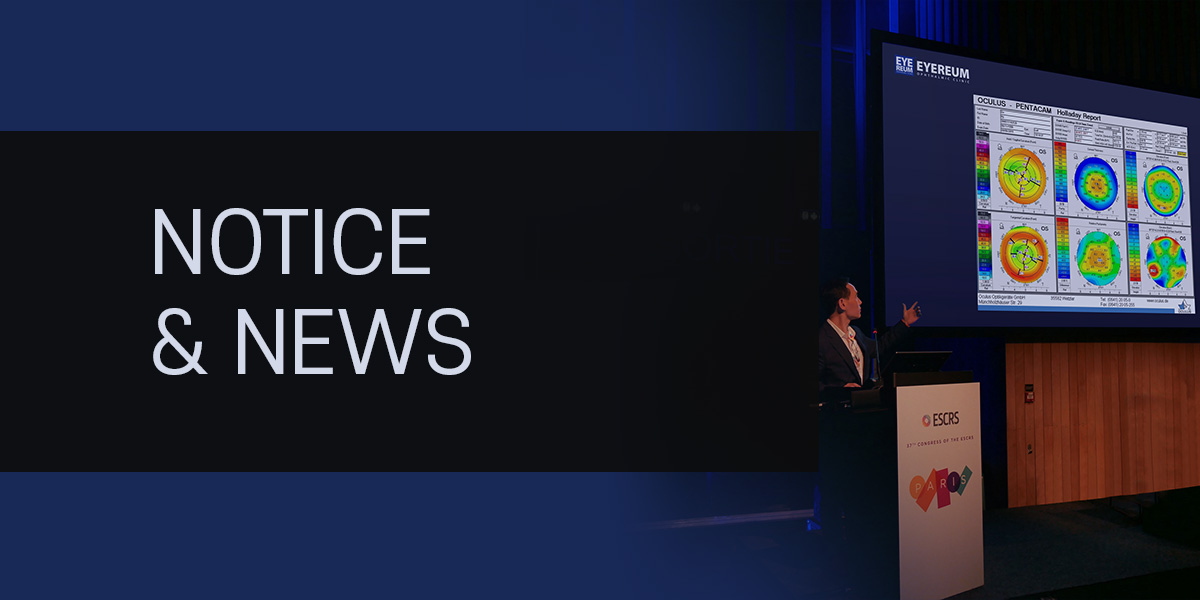
2017 ESCRS/Dr. David Kang - Comparison of clinical outcomes and corneal aberrations between subjective centration and triple marking centration techniques for small incision lenticule extraction

Comparison of clinical outcomes and corneal aberrations between subjective centration and triple marking centration techniques for small incision lenticule extraction
Session Title: LASIK Outcomes and Refinements
Session Date/Time: Monday 09/10/2017 | 14:30-15:50
First Author: : D.Sung Yong Kang SOUTH KOREA
Co Author(s): : D. Reinstein T. Archer G. Carp S. Arba-Mosquera H. Lee T. Kim
Abstract Details
Purpose:
To compare treatment centration accuracy between subjective patient fixation and triple marking centration for SMILE and to compare clinical and corneal aberration outcomes of the 2 techniques.
Setting:
Eyereum Eye Clinic, Seoul Korea Severance Hospital, Yonsei University School of Medicine.
Methods:
Retrospective analysis of 91 consecutive eyes treated with subjective fixation-based centration (Subjective Group) and a matched group of 100 eyes treated with objective triple marking centration(Triple Centration Group) for SMILE. A tangential (instantaneous) curvature preoperative to postoperative difference map was generated for each eye. A fixed grid and set of concentric circles were superimposed on the difference map to measure the offset between the optical zone center and corneal vertex (0,0), and vector analysis was used for comparative analysis at 3 months postoperatively.
Results:
Both groups showed good and comparable visual outcomes.The objective triple centration group had better centration accuracy compared to the Subjective fixation group (p<0.0001). Corneal total root mean square (TRMS) increased by 0.1157 ± 0.202 um in the Subjective group and by 0.041 ± 0.178 in the Triple Centration group ( p=0.007). Coma Induction was also significantly different with 0.106 ±0.195 um in the Subjective group and 0.032 ± 0.207 um in the Triple Centration group (p=0.012). Increase in amount of decentration correlated with amount of induced corneal HOAs.
Conclusions:
Optical Zone centration accuracy was significantly better with an objectively guided triple centration marking method when compared with subjective fixation alone. Better centration led to similar visual acuity but induced less corneal HOA after surgery.
